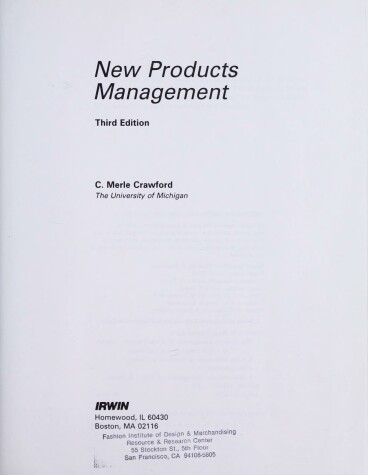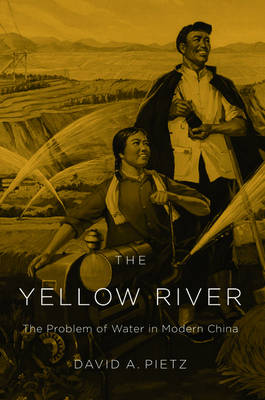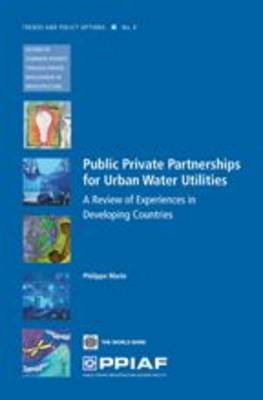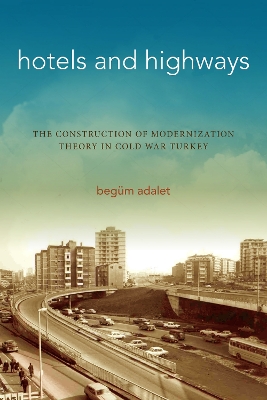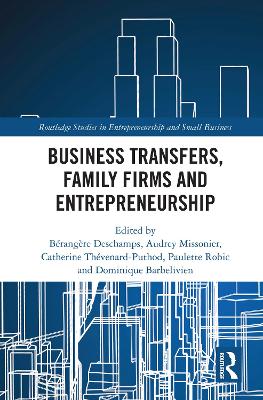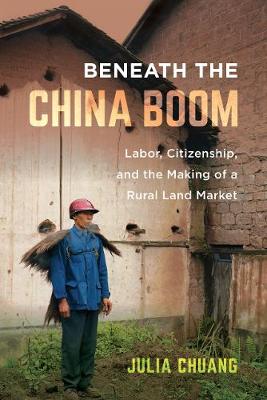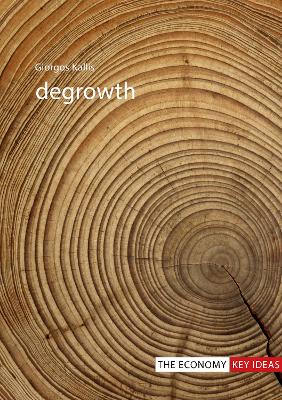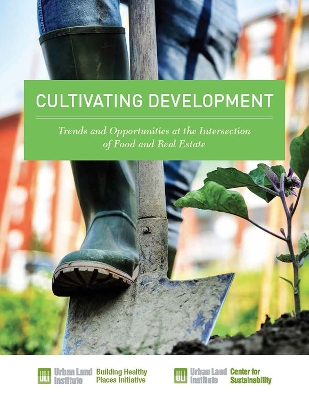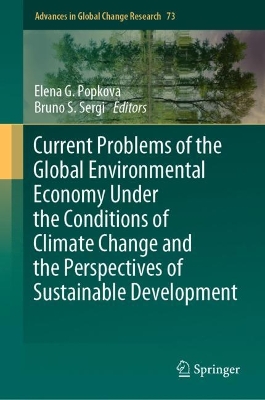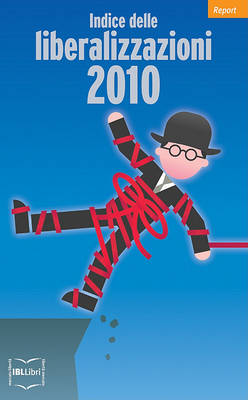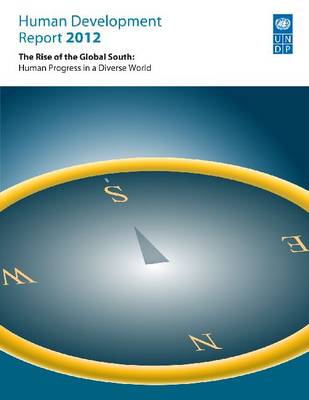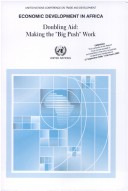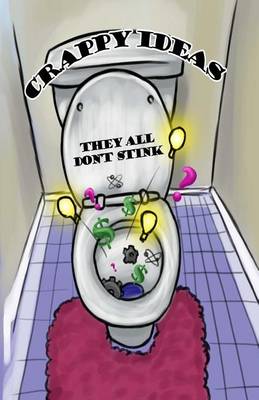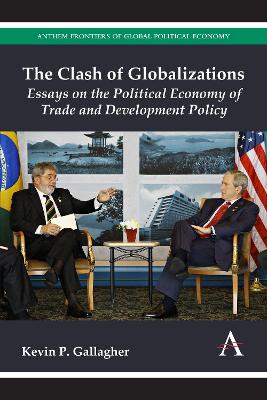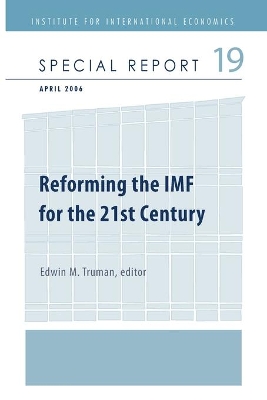New Products Management (The Irwin series in marketing)
by C.Merle Crawford
Taking a managerial approach, in order to acquaint students with the managerial steps and processes involved in new product development, this work includes coverage of product protocol.
In the Maoist years the North China Plain was re-engineered to use every drop of water for irrigation and hydroelectricity. As David Pietz shows, China's urban growth, industrial expansion, and agricultural intensification rested on compromised water resources, with effects that cast a long shadow over China's future course as a global power.
Over the past two decades, how has urban agriculture changed in sub-Saharan Africa? Is city farming now better integrated into environmental management and city governance? And, looking ahead, how might urban agriculture address the needs of the low-income households and modernizing cities of Africa? In this book, leading specialists in the fields of urban agriculture and urban environment present a unique collection of case studies that examines the growing role of local food production in urb...
Public Private Partnerships for Urban Water Utilities
"'Public-Private Partnerships for Urban Water Utilities: A Review of Experiences in Developing Countries' analyzes the market growth of Public-Private Partnerships (PPPs) in the developing world since 1990, and the performance of more than 65 large water PPP projects-representing more than 100 million people-for access, service quality, operational efficiency, and tariff levels. Although a relatively small portion of the water utilities in the developing world are operated under PPPs (about 7 pe...
Remittances from international migrant workers play an important role in South Asia, helping to reduce poverty and pay for schooling and healthcare. This study examines the drivers, development impacts and policy aspect, with a special focus on management and regulation of migration and remittances in the region.
Hotels and Highways (Stanford Studies in Middle Eastern and Islamic Societies and Cultures)
by Begum Adalet
The early decades of the Cold War presented seemingly boundless opportunity for the construction of "laboratories" of American society abroad: microcosms where experts could scale down problems of geopolitics to manageable size, and where locals could be systematically directed toward American visions of capitalist modernity. Among the most critical tools in the U.S.'s ideological arsenal was modernization theory, and Turkey emerged as a vital test case for the construction and validation of dev...
Business Transfers, Family Firms and Entrepreneurship (Routledge Studies in Entrepreneurship and Small Business)
‘Business transfer’ refers to the transfer of ownership and leadership from one or more outgoing owner-manager(s) to one or more incoming owner-manager(s). Apart from all the company's material assets, it presupposes that information, relationships, know-how and social capital are also transmitted from one to the other. While much of the research on entrepreneurship has focused on new business ventures, few studies have considered business transfers as an alternative way of embarking on entrep...
For nearly four decades, China's manufacturing boom has been powered by the labor of 287 million rural migrant workers, who travel seasonally between villages where they farm for subsistence and cities where they work. Yet recently local governments have moved away from manufacturing and toward urban expansion and construction as a development strategy. As a result, at least 88 million rural people to date have lost rights to village land. In Beneath the China Boom, Julia Chuang follows the traj...
The Sustainable MBA provides the knowledge and tools to help you "green" your job and organization, to turn sustainability talk into action for the benefit of your bottom line and society as a whole. Based on more than 100 interviews with experts in business, international organizations, NGOs and universities from around the world, this first of its kind guide brings together all the pieces of the business and sustainability puzzle including: The basics on what sustainability is, why you...
Development and the Rural-Urban Divide (Routledge Library Editions: Urban Studies)
First published in 1984. It is widely acknowledged that rural-urban differences and interrelationships play an important role in the development process. Some theorists believe they are a primary cause of continuing poverty in poor nations. This volume of essays summarises and appraises theories of rural-urban relations and economic development and explores, mainly on the basis of country case studies, the conceptual and theoretical problems to which they give rise, and the extent to which they...
The term “degrowth” has emerged within ecological and other heterodox schools of economics as a critique of the idea (and ideology) of economic growth. Degrowth argues that economic growth is no longer desirable – its costs exceed its benefits – and advocates a transformation of economies so that they produce and consume less, differently and better. Giorgos Kallis provides a clear and succinct guide to the central ideas of degrowth theory and explores what it would take for an economy to transi...
Cultivating Development
by Kathleen B. Carey, Rachel MacCleery, Sarene Marshall, and Matthew Norris
This book presents a systemic view of the global environmental economy under the conditions of climate change from the positions of Sustainable Development Goals. The purpose of the book is to study the current problems of the global environmental economy under the conditions of climate change and to determine the prospects of its sustainable development (systemic support for the SDGs). This goal predetermines the logic and structure of the book, which is comprised of five parts. Part I presents...
Surprise is rarely a good thing in business. Unexpected developments range in their effects from inconvenient to disastrous. To avoid being blindsided, companies must develop a Competitive Early Warning system, or CEW, which combines strategic planning, competitive intelligence, and management action. Such systems let organizations manage risk more effectively and prevent ""industry dissonance"" -- when market realities outpace corporate strategies. Early Warning reveals how to: * Change strateg...
The 2006 report on Economic Development in Africa examines how the commitment by the international community to double aid to Africa might place the continent on a sustainable development path. The report identifies the flaws in the existing international aid system, and its central message is that, if this commitment is to translate into big reductions in poverty and lasting gains in economic welfare, new thinking is required. Publishing Agency: United Nations (UN).
